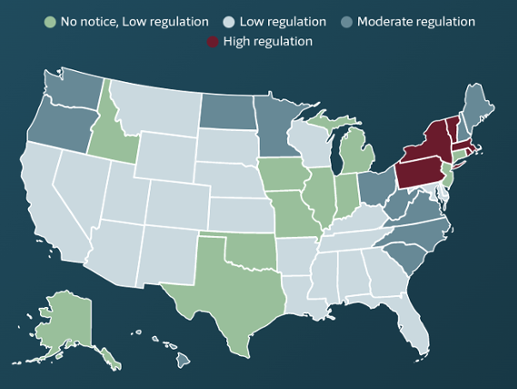Homeschooling for Beginners
Are you a beginner wanting to homeschool but don’t know where to start? This is understandable since the choices seem endless!

Don’t worry. You can do it!
Here are 6 steps for beginners when looking at homeschooling for your family.
Homeschooling for Beginners in 6 Steps
1. Learn your state regulations
While homeschooling is legal in all 50 states, you need to know what your state laws are. This is the first step on your homeschooling journey.
For the homeschooling laws and regulations in your state, first go to my post, How to Homeschool in Your State.
HSLDA
One of the best resources for homeschoolers is HSLDA – The Homeschool Legal Defense Association. This organization is not only a wonderful resource of support that stays up to date on the laws state to state but it plays an important part in the legal defense of our freedoms. The team at HSLDA work hard to fight well in the courtroom for us.
With their State Laws at a Glance, you will find the ages your state requires schooling for your children, registration requirements, if any, and so many resources – basically all you need to know in the legal sense in order to begin homeschooling.
2. Consider your preferred teaching style
There are many types of homschool styles. From Unit Studies and School-at-Home, Charlotte Mason and Classical, Unschooling and Eclectic, Montessouri and Waldorf, Roadschooling and Worldschooling; the amount of choices make it a guarantee you’ll find the right fit for your family.
You can have different styles of learning as well but I suggest you start at teaching style to avoid burnout. You can always adjust from here.
There are quizzes you can take and summaries of each style to find the best fit for your starting point.
Quzzes & Style Summaries
Here are just a few of them:
The Homeschool Style Quiz by Rebecca Spooner at HomeschoolOn
The Ultimate Guide to Homeschool Methods by Pam Barnhill
Find Your Homeschooling Method by Homeschool.com
Homeschooling Styles by TheHomeschoolMom.com
Types of Homeschooling by Time4Learning.com
Different Styles of Homeschooling: Which One is Your Best Match? by BlessedHomeschool.com
3. Consider your limitations
No homeschool family is exactly the same. There are families schooling on the road in an RV. There are families who have a grandparent who does the majority of the teaching. There are single parent homeschool families.
What yours looks like isn’t a deal breaker. It is important to look at though, in order to best prepare you and your children.
Evaluate
Do you work full-time? Do you or your child have special needs?
Pray for creativity and think outside the box. There are so many resources for ideas and support. God can make a way!
Check out my post You Can Homeschool and consider the book Anyone Can Homeschool – Overcoming Obstacles to Home Education by Nicki Truesdell. Here is a link to her site where you can read the introduction of the book. It may encourage you.
4. Choose your curriculum
You may have some ideas of where you want to start based on what you found researching homeschool styles.
There is everything from the entire school year in a box type to one-time purchase K-12 entire family schooling in a box. Many can be mix and matched.
You can find curriculum used at estate sales, thrift stores, garage sales, online YardSales and other sites like Abebooks and Thriftbooks. We have a small local homeschool conference that has a used curriculum sale with a free section as well.
Like me, you may have a veteran homeschool friend or two who would love to see their used curriculum go to you than a stranger or than fussing with resale and donations.
You may find Cathy Duffy’s reviews or The Rainbow Resource Center helpful. Cathy has a few books that can be found at the library and The Rainbow Resource has an extensive catalog you can send for although I find their site easier because of search options.
Remember, don’t stress too much about this part. It will likely change. You and your children will need time to see what works and weed out what doesn’t.
Life changes
One year something may work better than another. Dynamics change. Children grow. That’s okay. Give yourself grace and be flexible.
If you just want somewhere to start as you are deciding on a purchase you can read my post Homeschool for Free or Emergency Homeschooling.
5. Find Support
One way to help aid in your process to choose which style to start with or which curriculum to go with could be to find people whose children are growing up with characteristics that are important to you.
For example, when a friend of mine was beginning her homeschooling journey, she went to a homeschool convention only to become more confused as to which choice was the right one for her family. Her husband’s advice was for her to observe families she knew that had young people who were turning out nicely and do what they are doing.
Many years later, I can tell you her children are some of the kindest, most intelligent young people and adults that I know.
So, find other like-minded homeschool families and start your observation.
Search groups on Facebook or from your state’s local groups website. Observing how other families do things can be helpful in finding where you may ot may not want to start. Even if you don’t do things the same as other homeschool friends you find, it can still be very encouraging to have other homeschool folks to do life with.
You will eventually (or soon) find your tribe.
A word of caution: If you feel you must sign up for co-ops, do it carefully. You don’t have to do everything and be involved in all the things to be successful as a homeschooler.
6. Deschool
This brings me to my last point for your consideration in homeschooling for beginners. Deschooling.
What is deschooling? Is it unschooling?
Deschooling is not unschooling. Unschooling is a homeschool style also known as child-led learning.
My sloppy summary of deschooling is the the process of unlearning of what we think education is supposed to look like. Deschooling is taking a step back to rethink what is best for our education journey and plan. It is clearing the pallete of how we have bee programmed to see learning.
Deschooling is important for families.
It is important for free-thinkers.
And do not be conformed to this world, but be transformed by the renewing of your mind, so that you may prove what the will of God is, that which is good and acceptable and perfect.
Romans 12:2
The Bible says no man can serve two masters. Society has gotten too far away from actual education while turning the government schools into an unhealthy and unbiblical authority. Even worse, these authorities are failing the children and future of our nation.
We need a mindset shift.
If we are going to be set apart as we as Christians are called to be, we must not do what the world is doing. What that looks like for you may be different than what it looks like for me.
We need to create a buffer. We need space to deschool. We need to thnk outside of the box we’ve allowed world to stuff us into.
Whatever an education is, it should make you a unique individual, not a conformist; it should furnish you with an original spirit with which to tackle the big challenges. It should allow you to find values which will be your road map through life; it should make you spiritually rich, a person who loves whatever you are doing, wherever you are, whomever you are with; it should teach you what is important, how to live and how to die.
John Taylor Gatto
Here is an article called Deschooling 101 by Homeschool Thinktank.
6 Steps to Homeschooling for Beginners Recap
It can be easy to get bogged down with all of the things that “need” to be done in order to homeschool but don’t let yourself get distracted. Protect yourself and your family from overwhelm and keep it simple.
- Learn your state regulations
- Consider your teachimg style
- Consider your limitations
- Choose your curriculum
- Find support
- Deschool
Take it easy. Not all of this is required. It’s just a suggested guide for a starting point.





